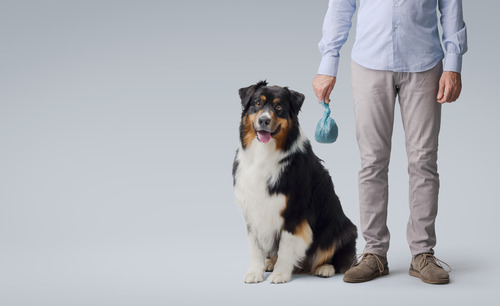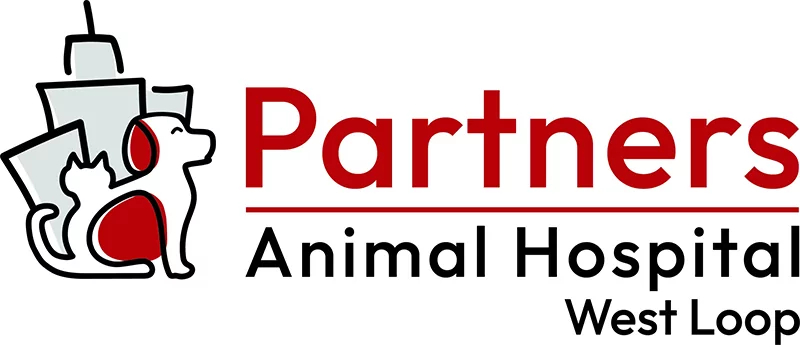Dog Diarrhea: What Can I Do to Help?

When your dog has diarrhea, it can be a worrying and messy situation. As a pet parent, you may feel unsure about what to do to ease your dog’s discomfort and restore their digestive health. While diarrhea can sometimes be a minor issue, it may also indicate a more serious condition that requires veterinary attention. At Partners Animal Hospital West Loop in Chicago, IL, we can help you understand the potential causes of diarrhea in dogs and what steps you can take to address the situation. If your dog’s diarrhea persists or worsens, call us at (312) 767-4762 or book an appointment online.
Why Does My Dog Have Diarrhea?
Understanding the potential causes of diarrhea can help you determine the best course of action for your dog. Here are some common reasons why dogs experience diarrhea:
Dietary Indiscretion
Dogs are naturally curious and may eat things they shouldn’t, such as spoiled food, garbage, or foreign objects. This is one of the most frequent causes of diarrhea in dogs. Consuming something inappropriate can upset your dog’s stomach and lead to loose stools.
Sudden Diet Changes
Switching your dog’s food too quickly can result in digestive issues. Dogs need time to adjust to new food, and abrupt changes can disrupt the balance of healthy gut bacteria, leading to diarrhea.
Food Allergies or Intolerances
Some dogs develop allergies or intolerances to certain ingredients in their diet, such as grains, dairy, or proteins. This can cause chronic or recurring diarrhea, along with other symptoms like itching or vomiting.
Parasites
Internal parasites, such as roundworms, hookworms, and giardia, can irritate your dog’s digestive system and cause diarrhea. Puppies and dogs with weakened immune systems are particularly susceptible to parasites.
Stress or Anxiety
Stressful situations, such as moving to a new home, introducing a new pet, or changes in routine, can lead to diarrhea in dogs. This is sometimes referred to as stress-induced diarrhea.
Underlying Medical Conditions
Chronic diarrhea may be a symptom of an underlying medical condition, such as inflammatory bowel disease (IBD), pancreatitis, or liver disease. If your dog’s diarrhea is persistent or accompanied by other symptoms, it’s important to consult your veterinarian.
When Should You Contact Your Veterinarian?
While some cases of diarrhea can resolve on their own, others require professional attention. Knowing when to call your veterinarian is crucial to protecting your dog’s health. Here are some signs that it’s time to seek veterinary care:
- Persistent Diarrhea: If your dog’s diarrhea lasts for more than 24-48 hours, it’s important to have them examined.
- Blood in Stool: The presence of blood—either bright red or dark and tarry—is a sign of a more serious issue.
- Lethargy: If your dog seems unusually tired or weak, this could indicate dehydration or an underlying condition.
- Vomiting: Diarrhea accompanied by frequent vomiting may lead to severe dehydration and requires prompt care.
- Loss of Appetite: If your dog refuses to eat for more than a day, it’s a cause for concern.
- Signs of Pain: Whining, restlessness, or difficulty lying down may indicate abdominal discomfort.
If your dog is experiencing any of these symptoms, call Partners Animal Hospital West Loop at (312) 767-4762 to schedule an appointment. Early intervention can make a significant difference in your dog’s recovery.
How to Support Your Dog at Home
While waiting for your veterinary appointment, there are steps you can take to help your dog feel more comfortable. Always consult your veterinarian before trying any new remedies or dietary changes.
Provide Fresh Water
Diarrhea can quickly dehydrate your dog, so it’s essential to ensure they have access to clean, fresh water at all times. Encourage your dog to drink small amounts frequently to avoid further stomach upset.
Temporary Fasting
For adult dogs, a temporary fast of 12-24 hours may help their digestive system reset. Puppies and smaller dogs should not be fasted without consulting a veterinarian, as they have higher energy needs.
Bland Diet
After fasting, introduce a bland diet of boiled chicken and white rice or plain cooked pumpkin. These foods are gentle on the stomach and can help firm up your dog’s stool. Gradually transition back to their regular diet over a few days.
Monitor Their Behavior
Keep a close eye on your dog’s behavior and symptoms. Take note of the frequency and appearance of their stools, as this information will be helpful for your veterinarian.
What Can You Do to Prevent Future Episodes of Diarrhea?
Preventing diarrhea involves taking steps to maintain your dog’s overall health and well-being. Here are some tips to reduce the risk of future digestive issues:
- Gradual Diet Changes: When switching your dog’s food, do so gradually over 7-10 days. Mix increasing amounts of the new food with their current food to allow their digestive system to adjust.
- Safe Feeding Practices: Avoid giving your dog table scraps or foods that may be harmful to them, such as chocolate, onions, or fatty meats. Stick to a veterinarian-recommended diet to ensure they’re getting proper nutrition.
- Parasite Prevention: Regularly deworm your dog and keep up with flea and tick prevention to protect them from parasites. Annual fecal exams can help detect and treat any hidden issues.
- Minimize Stress: Provide a stable and predictable routine for your dog, and use calming products if they’re prone to anxiety. Ensuring a safe and comfortable environment can reduce stress-related diarrhea.
- Regular Check-Ups: Routine veterinary check-ups monitor your dog’s health and address any potential issues before they become serious. Don’t hesitate to schedule an appointment if you have concerns about your dog’s digestive health.
Your dog’s health and happiness are our top priorities at Partners Animal Hospital West Loop. If your dog has diarrhea, we’re here to provide the expert care they need to get back to feeling their best. Call us at (312) 767-4762 or book an appointment online today.
About Us
At Partners Veterinary Group, we believe in energizing our team members through shared values, while helping them create value for our clients and patients. Knowing we can help make pets’ and people’s lives better motivates us to continually strive for excellence and love what we do.
Our team consistently works to build educational, supportive, and cooperative work environments that cater to positive experiences and professional growth. We’re constantly evolving, creating innovative ways to deliver cutting-edge medicine to our patients. We equip our teams with tools to enhance their skills and improve their knowledge.
